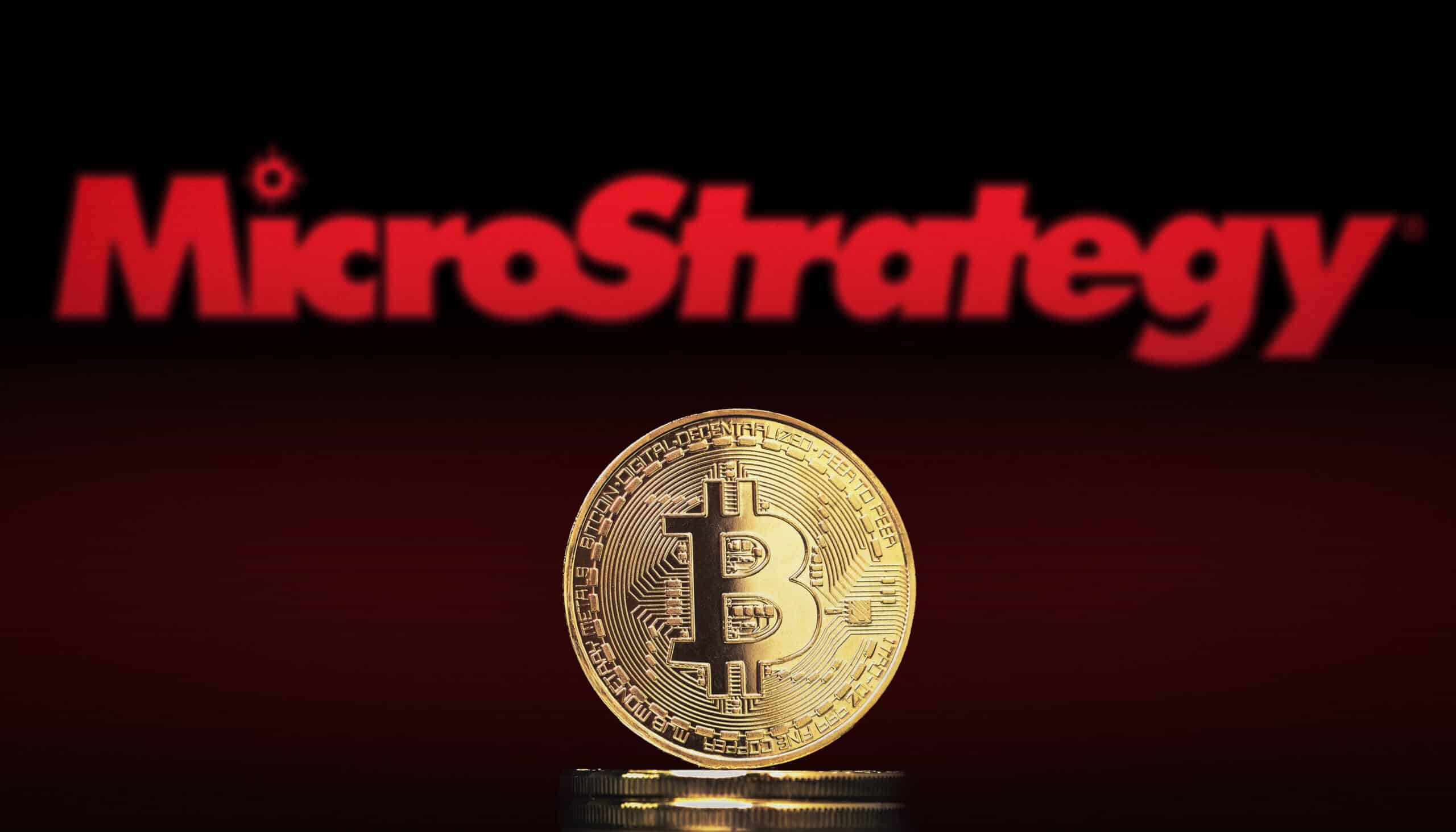
Posted January 16, 2024 at 7:00 am EST.
Software firm MicroStrategy (MSTR) is in a tricky spot following last week’s historic approval of multiple Bitcoin spot ETFs by the Securities and Exchanges Commission (SEC).
The company boasts the world’s largest Bitcoin (BTC) corporate treasury — a massive stash of 189,150 BTC at the time of publication that’s worth more than $8 billion. This makes MSTR an ideal proxy for traditional investors who are unable or reluctant to hold the cryptocurrency outright. And optimism about growing demand for Bitcoin created by the easy-to-buy ETFs has helped push Bitcoin’s price to near-term highs, increasing the value of all the BTC that MicroStrategy holds.
But now that 11 spot Bitcoin ETFs have been approved and begun trading, MSTR, which currently trades at a significant premium to the value of all the Bitcoin it owns — anywhere from 26% to 67%, depending on how it’s being calculated — may see a significant decrease in that premium. That’s because investors could potentially flock to more familiar and trusted names such as BlackRock and Fidelity, both of which are among the list of ETF applicants approved by the SEC.
So far, investors seem to have been following that logic, sending MSTR shares down about 24% last week, while Bitcoin only dropped 5% over the same time period.
Nevertheless, there are arguments both for and against continuing to own MicroStrategy.
Reasons to Own MicroStrategy Stock
1. No Fees
Perhaps the most obvious reason to maintain a long position in MSTR is that it incurs no annual fees, unlike ETF shares which charge anywhere from 0.19% to 1.50% every year.
“Over time, the fees compound, resulting in underperformance compared to MSTR,” investment analyst Mark Harvey wrote on X this week. “MicroStrategy, being an operating company, has no fees to hold.”
2. An underlying cash flow-generating business
Harvey offers a second reason for remaining bullish on MSTR — the fact that MicroStrategy is a cash flow-generating business that can consistently grow its Bitcoin corporate treasury.
“The software business provides MSTR with free cash flows, allowing MSTR to acquire additional BTC on behalf of its shareholders,” Harvey wrote.
3. Tax liability
Michael Tanguma, CEO and co-founder of Onramp, a Bitcoin financial services firm that recently launched a spot BTC trust for high-net-worth investors, told Unchained that he doesn’t have a strong opinion about the potential impact of the latest approvals on MicroStrategy.
However, he highlighted negative tax implications as another reason for investors to continue holding their MSTR. The stock price has nearly tripled since 2020 — the year MicroStrategy began acquiring Bitcoin — which means that many investors will likely owe substantial capital gains taxes if they sell.
“One camp will say MSTR should expect a sell-off given its historical use as a proxy to BTC,” Tanguma explained, but “investors could get hit with a tax liability,” he cautioned.
4. Acquisition potential
Most experts are only debating whether MSTR’s stock price will go up or down as a result of the arrival of spot Bitcoin ETFs, but there’s another option — a possible acquisition at a premium price.
“One thing I think is possible with MSTR is that it could end up being a buyout target at a premium to BTC spot intrinsic value,” Bitcoin investor and online personality Fred Krueger posted on X last week. However, he told Unchained that such an outcome would be “a big stretch” and “not at all a near-term possibility.”
That hypothetical scenario would see current MSTR holders maintaining their long positions and eventually selling at a higher price if and when such an acquisition took place.
“A longshot, but not completely off the table,” Krueger explained. “Blocks of 200,000 BTC are few and far between.”
5. Philosophical alignment with Bitcoin
Christopher Calicott, managing director at Trammell Venture Partners, a Bitcoin-focused venture capital firm, agrees with the cash flow argument. He also brought up another reason for investors to hold onto MSTR — philosophical alignment.
“MSTR is philosophically aligned with the Bitcoin ethos,” Calicott told Unchained, referring to the pro-Bitcoin philosophy of Michael Saylor, founder and chairman of MicroStrategy, who has garnered a cult-like following in the Bitcoin community because of his bullish views on the cryptocurrency.
Much like the appeal of environment, social and governance (ESG) assets, Calicott said “having investment in MicroStrategy could be an interesting option,” given that Saylor and his management team aren’t merely corporate mercenaries but instead, demonstrate an understanding of ‘why Bitcoin is important for humanity.’”
Reasons to Sell MicroStrategy Stock
1. ETF fees are very low
Bitcoin investor and online personality Fred Krueger disagrees with Harvey on the significance of ETF fees. “I don’t think the fees are a great reason to buy MSTR,” Krueger said in a recent video. “The ETF has very low fees.”
Krueger has a point. Because there’s so much competition, the majority of spot Bitcoin ETF issuers are charging extremely low annual fees, with many waiving their fees entirely for the first six months or a year, or until a certain threshold of assets under management is reached. On Friday, Franklin Templeton lowered its annual fee to a category low of 0.19%, on top of a fee waiver until August for the first $10 billion in assets.
2. MSTR’s valuation
As noted, MicroStrategy’s stock has nearly tripled since 2020, leading to inevitable questions about whether it’s overvalued. According to Krueger’s valuation method, which involves dividing MicroStrategy’s market capitalization by an estimated liquidation value, the company trades at a premium of between 55% to 67%. Meanwhile, 10X Research, which analyzed MicroStrategy’s valuation by comparing its share price to the price of Bitcoin, finds MSTR’s shares to be overvalued by 26%.
Regardless of the accuracy of his numbers, Krueger doesn’t appear convinced by Harvey’s and Calicott’s cash flow thesis. He is adamant that MSTR has become a dud.
“I looked through the numbers,” he said. “I really see no reason to own MSTR.”
3. Key man risk
Finally, there’s one risk to owning MSTR that most analysts agree on — Michael Saylor. It’s not clear what would happen to MicroStrategy if his relationship with the firm was somehow severed.
“The biggest risk I see for MSTR is key man risk with the company founder and controlling shareholder, Saylor,” Harvey said.
Krueger agreed with Harvey, pointing out that the spot ETFs will have better and more predictable governance than MicroStrategy, especially given how much influence Saylor has over the firm.
“This ETF will be managed in a more decentralized way,” Krueger said. “It’s not controlled by a single person.”








